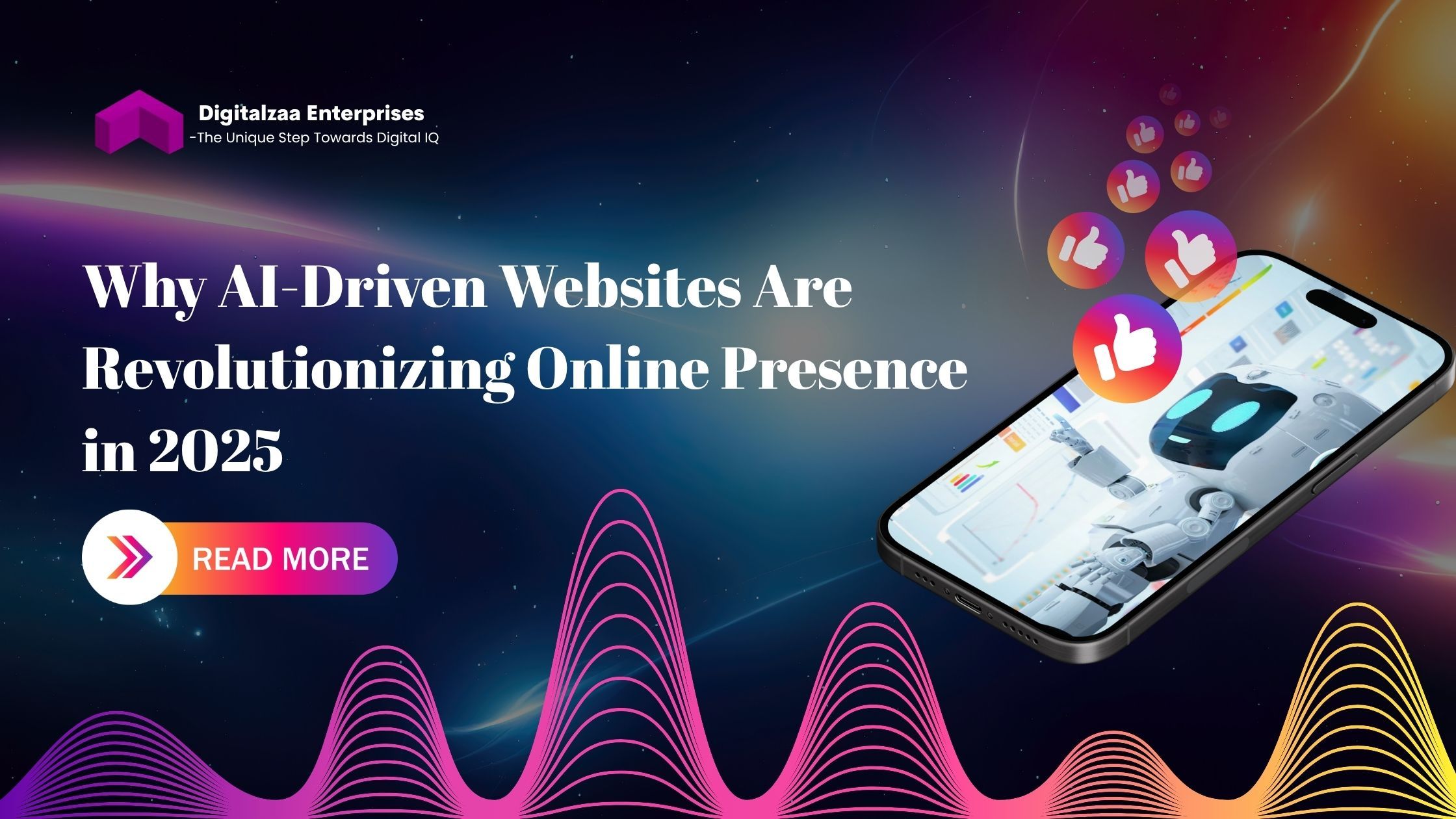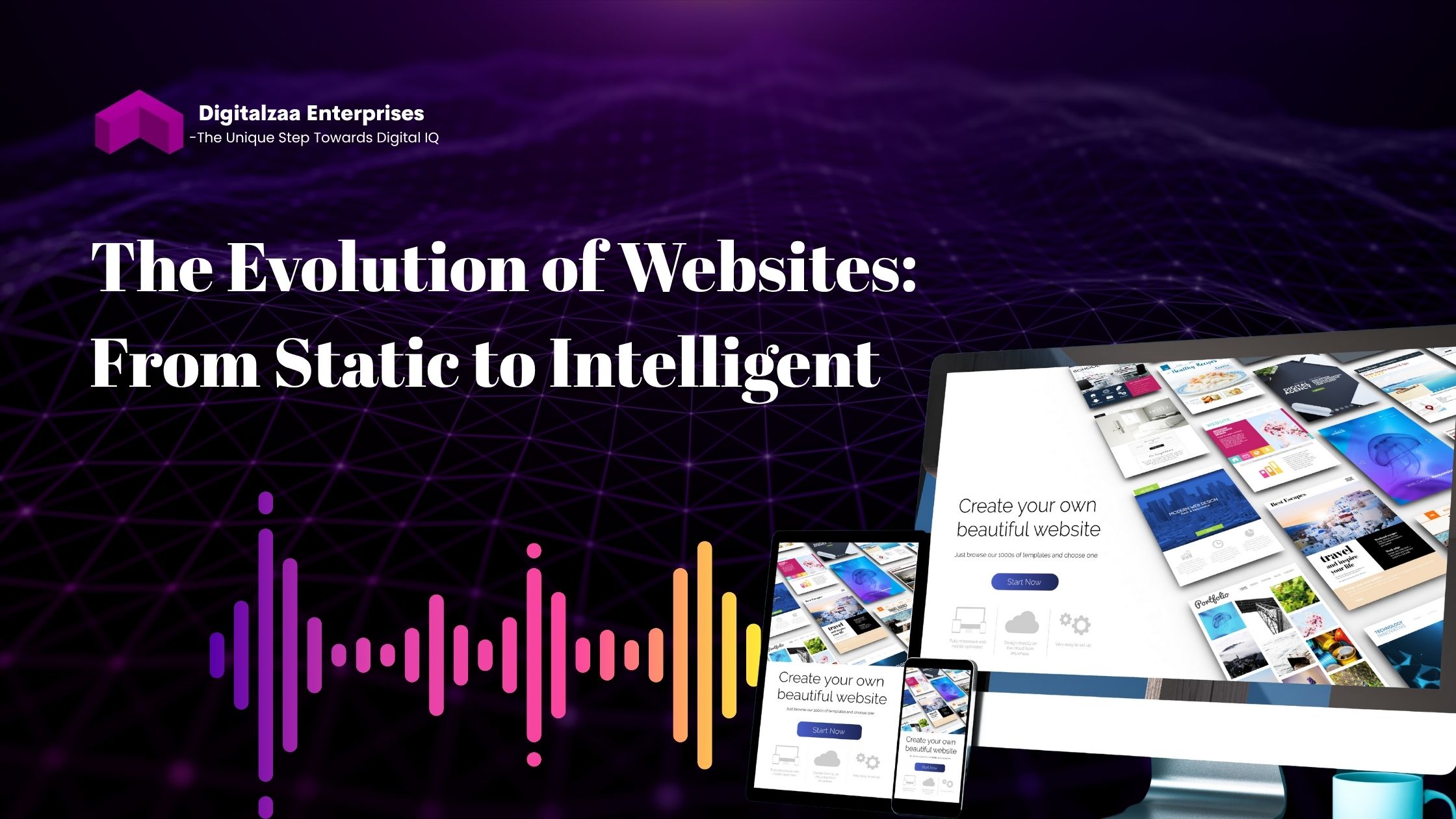Why AI-Driven Websites Are Revolutionizing Online Presence in 2025

The digital landscape is evolving at an unprecedented pace. In 2025, businesses and individuals alike are realizing that a website is no longer just a static online brochure but a dynamic, intelligent platform that actively engages visitors, personalizes experiences, and drives conversions. At the heart of this transformation lies Artificial Intelligence (AI). AI-driven websites are revolutionizing how brands establish and maintain their online presence, and understanding why this shift matters is crucial for anyone aiming to stay competitive in today’s digital marketplace.
The Evolution of Websites: From Static to Intelligent

Traditionally, websites were static collections of pages offering basic information. Over time, they evolved into interactive hubs featuring multimedia content, forms, and e-commerce capabilities. However, the real revolution began with AI integration, transforming websites into smart, adaptable, and user-centric platforms.
AI technologies such as machine learning, natural language processing, and computer vision are now embedded into websites, enabling them to analyze visitor behavior, automate processes, and deliver personalized content in real-time. This evolution is not just incremental; it’s a paradigm shift redefining what a website can achieve.
Why AI-Driven Websites Are Essential in 2025
- Personalization at Scale: One of the biggest challenges for websites has always been to provide relevant content to a diverse audience. AI-driven websites leverage sophisticated algorithms to analyze user data such as browsing history, preferences, location, and interaction patterns. This data allows websites to dynamically tailor content, offers, and navigation pathways uniquely for each visitor.
- Enhanced User Experience (UX): User experience is paramount for retaining visitors and reducing bounce rates. AI contributes significantly by optimizing every interaction on the website. Chatbots powered by natural language processing offer immediate assistance 24/7, answering queries and guiding users without human intervention. AI also optimizes website speed and layout by analyzing visitor interactions to identify friction points.
- Automated Content Creation and Management: Creating high-quality content consistently is a resource-intensive task. AI websites benefit from automated content generation tools that produce blog posts, product descriptions, and social media updates. These tools use natural language generation to create readable, engaging content tailored to the brand’s voice and audience preferences.
- Improved SEO and Search Capabilities: Search Engine Optimization (SEO) is critical for online visibility. AI helps websites optimize metadata, keywords, and site structure for better rankings. Advanced AI-driven SEO tools analyze search engine algorithms in real-time and adapt content strategies accordingly. Additionally, AI-enhanced site search improves user navigation by delivering precise and contextually relevant search results, even for complex queries. This increases visitor satisfaction and the likelihood they will find what they’re looking for quickly.
- Data-Driven Insights and Analytics: AI transforms website analytics from static reports into actionable insights. Machine learning algorithms sift through vast amounts of data, identifying patterns and predicting user behavior. Website owners can receive real-time alerts about trends, visitor drop-offs, and conversion bottlenecks.
- Security and Fraud Prevention: With increasing cyber threats, AI-driven security measures on websites are becoming indispensable. AI systems detect anomalies in traffic patterns, flag suspicious activities, and prevent cyberattacks such as DDoS (Distributed Denial of Service) or brute force login attempts. Moreover, AI-driven authentication methods like facial recognition and biometric verification enhance user security while maintaining seamless access. The adaptive nature of AI means that security protocols continually evolve to counter emerging threats.
Key AI Technologies Powering Websites in 2025
To appreciate the revolution, it’s helpful to understand the core AI technologies driving this transformation:
- Machine Learning (ML): Enables websites to learn from user data and improve over time without explicit programming. ML powers recommendation engines, predictive analytics, and personalization algorithms.
- Natural Language Processing (NLP): Allows websites to understand and respond to human language. Chatbots, virtual assistants, and voice search functionality all rely on NLP.
- Computer Vision: Empowers websites to analyze and interpret images and videos, enabling features like visual search and automated tagging.
- Robotic Process Automation (RPA): Automates repetitive backend tasks such as data entry, content updating, and customer follow-ups.
Real-World Applications of AI-Driven Websites
- E-Commerce: AI-driven e-commerce websites offer personalized shopping experiences by recommending products, optimizing pricing dynamically, and streamlining checkout processes. Virtual fitting rooms powered by AI allow customers to try on clothes digitally, reducing returns and improving satisfaction.
- Healthcare: Medical websites integrate AI to offer symptom checkers, virtual consultations, and personalized health content. AI also manages appointment scheduling and patient follow-ups, enhancing accessibility and care continuity.
- Media and Entertainment: Streaming platforms and news sites use AI to curate personalized content feeds. AI-driven content moderation ensures compliance with regulations and community standards.
- Education: Online learning platforms employ AI to customize curricula, monitor progress, and provide instant feedback. Intelligent tutoring systems simulate one-on-one instruction, improving learning outcomes.
- Financial Services: Banks and fintech websites utilize AI for fraud detection, customer onboarding via biometric verification, and personalized financial advice through virtual assistants.
Benefits of AI-Driven Websites for Businesses and Users

For Businesses:
- Increased Conversion Rates: Personalized user journeys and recommendations boost sales and lead generation.
- Cost Efficiency: Automation reduces the need for extensive human resources in customer service and content management.
- Competitive Advantage: Early adoption of AI technologies sets businesses apart in crowded markets.
- Scalability: AI systems handle large volumes of visitors and data without performance degradation.
- Insightful Decision-Making: Real-time analytics improve marketing and operational strategies.
For Users:
- Seamless Experience: Faster responses, relevant content, and intuitive navigation improve satisfaction.
- 24/7 Assistance: AI chatbots provide help anytime, anywhere.
- Personalized Interactions: Users feel valued with customized content and offers.
- Security: Enhanced protection of personal data builds trust.
Challenges and Ethical Considerations
Despite the benefits, AI websites also present challenges:
- Data Privacy: Collecting user data for personalization raises privacy concerns. Compliance with regulations like GDPR is essential.
- Bias and Fairness: AI systems can perpetuate biases present in training data, leading to unfair treatment.
- Transparency: Users should understand when they interact with AI and how their data is used.
- Dependence on Technology: Over-reliance on AI may reduce human oversight and creativity.
Addressing these concerns requires responsible AI development, clear communication with users, and ongoing monitoring.
Future Outlook: What’s Next for AI-Driven Websites?
As AI continues to mature, websites will become even more intelligent and intuitive. We can expect:
- Voice and Gesture-Based Navigation: More natural ways for users to interact with websites.
- Hyper-Personalization: Even deeper customization using emotional and contextual data.
- Integration with Augmented Reality (AR) and Virtual Reality (VR): Immersive experiences directly through web platforms.
- Autonomous Websites: Platforms that self-manage, self-optimize, and even self-heal technical issues.
- Ethical AI Frameworks: Growing emphasis on fairness, accountability, and user rights.
Businesses that embrace these innovations early will not only thrive but also help shape the digital future.
Conclusion
In 2025, AI-driven websites are no longer a futuristic concept—they are a present reality revolutionizing online presence across industries. By delivering personalized experiences, automating complex tasks, enhancing security, and providing deep insights, AI is transforming websites from static pages into dynamic business assets.
For businesses eager to stay competitive and for users seeking seamless digital interactions, AI websites represent the next frontier. Investing in AI technologies today means not only meeting current expectations but also future-proofing your online presence in an ever-evolving digital world.


